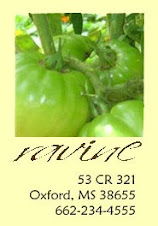If you're not following the trail of genetically modified foods or you do not live near much agricultural activity, you may not care about this news. But everyone should at least be aware of this discussion:
Should we allow genetically modified organisms and seeds to take over? Some argue that we will lose genetic diversity if we do not maintain our heirloom seeds, and promote the growth of multiple varieties of seeds. Others are worried that we do not know the effect that consumption of genetically modified organisms will have on the human race over time. Many others say that GMOs have been around long enough and that we need them to survive. They even go so far as to suggest that GMOs, and vitamin-fortified crops like Golden Rice can save entire countries from famine.
Germany deals blow to GM crops
Agriculture minister Ilse Aigner joins European mutiny over genetically modified crops by banning corn variety MON 810
by Kate Connolly in Berlin
guardian.co.uk, Tuesday 14 April 2009 17.19 BST
Germany has thrown its weight behind a growing European mutiny over genetically modified crops by banning the planting of a widely grown pest-resistant corn variety.
Agriculture minister Ilse Aigner said there was enough evidence to support arguments that MON 810, which is the only GM crop widely grown in Europe, posed a danger.
"I have come to the conclusion that genetically-modified corn from the MON 810 strain constitutes a danger to the environment," Aigner told reporters in Berlin.
Germany's move, which has immediate effect, goes against the European Commission's decision to support the lifting of bans on planting MON 810 which have been imposed by governments in France, Austria, Hungary, Greece and Luxembourg.
In the UK, the Welsh Assembly has declared the country GM-free. Supported by Britain, Finland, the Netherlands and Sweden, the Commission argued last month that moves to outlaw the corn on the grounds that it is dangerous were unjust because it has been deemed safe by scientists at the European Food Safety Authority.
MON 810 was first approved for commercial use in the EU in 1998 and has been permitted as a commercial crop in Germany since 2005. More than 70 per cent of German consumers support a ban on GM crops for food.
The US biotechnology firm Monsanto which markets the maize did not return calls but industry observers said the ban by Europe's largest country with a strong agricultural lobby, was a blow to the company.
MON 810 was developed to resist a moth larva which bores into the stem of the corn and against which there is only one approved insecticide.
Monsanto has repeatedly argued that MON 810 crops are safe and has tried to encourage their use as a cheap and plentiful food. They are widely grown in the US, Latin America and China.
But opponents insist that too little is known about GM crops and their long-term genetic impact on wildlife and the food-chain.
The German ban will now be analysed by the Commission, amid fears it could trigger trade tensions with the US. Under World Trade Organisation rules, the US administration has the right to retaliate.
Nathalie Charbonneau a spokeswoman for the Commission said it would scrutinise the German decision and "decide on the most appropriate follow-up".
Lobbyists for the biotechnology industry in Germany described the decision as a setback for science and for the economy. They warned that it would prompt biotechnology companies to relocate to other parts of the world.
What is The Best Way To Recycle Waste Materials?
-
Our planet groans under the weight of mounting waste. Plastic islands choke
our oceans, landfills overflow, and precious resources dwindle. Amidst this
env...
1 year ago

















No comments:
Post a Comment